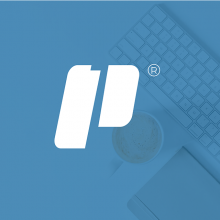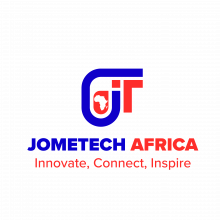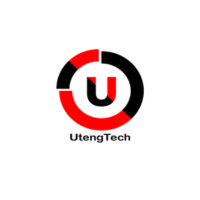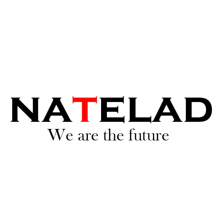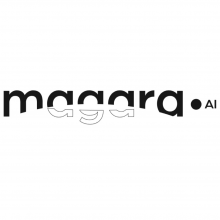
There are 10 Companies in Zimbabwe
that provide C development Services!
Zimbabwe’s combination of relatively stable governance, strategic location, and young and innovative population has made it an attractive destination for multinational companies. Zimbabwe’s ICT sector was worth an estimated $3.85 billion in 2025.
Discover Top IT Companies in Zimbabwe specialized in C and other related services. Find the best IT service providers for your projects.
C is a high-level programming language with a long and storied history. It was created in the early 1970s and is known for its simplicity, power, and versatility. C has played a foundational role in the development of many other programming languages and is widely used in various software development domains.
Handpicked companies • No obligation to hire • 100% risk-free
Featured Companies in Zimbabwe
This month, the following C development companies managed to provide an outstanding service and support. It's worth taking a look.
We are ‘next-generation’ technology Tech Savvy Individuals, driven by our core value, that acts as our road map for the future and for our clients.
JomeTech Africa delivers software development, web design, mobile apps, cloud services, hosting, data analytics, AI, and cybersecurity solutions.
Explore Top C development Companies in Zimbabwe
Coldfire Agency, your one-stop-shop for all your design needs! 📈
Services:
Software Development Company
Pique Squid transcends the ordinary. This elite IT and marketing firm leverages its cutting-edge approach and unmatched proficiency to elevate.
Services:
We providing a wide range software development, IT infrastructure management, website development, website design, digital marketing, bulky sms, email
Website development Agency
Services:
We know software engineering. We bring specialist expertise in a very human way, you level up your product, software team, or operations.
Your trusted partner for innovative IT and software development solutions.
Services:
Filter C development Companies in Zimbabwe by Cities
Find the right tech company near you or from a specific city. Some of the best companies might be located in smaller cities.
Find more C development companies around the world
TechBehemoths is the world's most advanced and user-friendly platform to match IT Companies with real clients without hustle.
The IT Industry in Zimbabwe: Companies, Insights & Data
Zimbabwe’s ICT sector was worth an estimated $3.85 billion in 2025. The telecommunications segment accounts for the vast majority of this, at around $256.8 million in 2024. Other important contributors are broadcasting, data center services, cloud, IT, and BPO.
Zimbabwe’s combination of relatively stable governance, strategic location, and young and innovative population has made it an attractive destination for multinational companies. Several notable firms, such as Deloitte and Orange, have offices in Harare, and some have based their entire African operations on these offices.
Why You Should Work With Zimbabwean IT Companies
Digital service providers in the cloud and BPO markets are primarily involved in the provision, rather than the development, of services, whereas Zimbabwean firms are more prevalent in the fintech and e-commerce markets. The physical technology required for the delivery of digital services is typically imported, and it is not clear that Zimbabwe could produce these products more efficiently.
A key strength in the digital services market is the acceptance of mobile services. Any consumer solution entering the market would have to be mobile-compatible. Mobile healthcare services are expected to grow particularly rapidly as the sophistication of these offerings increases.
What to Pay Attention to When Working With Zimbabwean IT Companies And Web Agencies
On the consumer side, it is vital that any proposed digital service offering be mobile-compatible due to the prevalence of mobile usage in Zimbabwe. Furthermore, smartphone penetration in the region is steadily increasing, thus increasing the sophistication of viable digital service offerings.
Given the acceptance of fintech by the Zimbabwean population, a possible route to entry in the consumer market is to acquire one of the many smaller fintech firms in the industry. This would resolve some of the primary barriers to entry, most specifically bureaucratic red tape and a lack of local knowledge.
On the corporate side, the most effective route to entry is likely through partnerships with smaller local resellers. This model is already popular in the Zimbabwean market. A key differentiating feature here will be how well the service adapts to the Zimbabwean market.
How Reliable Are Zimbabwean-based IT Companies?
Considered to be one of the biggest African IT hubs, Zimbabwean web agencies and IT companies compete only with Ethiopian ones in terms of reliability. As many foreign companies have already invested and thus developed the local IT infrastructure and industry overall, Zimbabwean IT companies find it easier than other neighboring countries to enter the global market and provide their services at accessible prices.
How Does the Zimbabwean IT Industry Relate to the Neighboring Countries?
Zimbabwe is actively trying to establish itself as a key ICT hub in the East African region. The country appears to be making good progress in this regard, helped by having a strong connectivity infrastructure and a young, innovative population. Despite this, the country currently faces considerable political uncertainty, and issues surrounding the transparency of tenders remain a major barrier to growth.
Although Zimbabwe’s score on the Global Innovation Index 2024 is not high in absolute terms, it ranks 118th in the world. This supports the conjecture that businesses, government, and consumers will be receptive to new technologies, as ICT has already had a substantial impact on the Zimbabwean economy.
Is Zimbabwe's Tech Industry Ready for 2025?
At the end of 2021, Zimbabwe announced big plans for the Global Entrepreneurship Week that boosted the startup scene in the country for 2022. The name of the program that gives hope to tech entrepreneurs from Zimbabwe is Startup Huddle, and it already has a location in Harare.
In 2025, the startup ecosystem in Zimbabwe suffered some challenges, for example, its drop to the 117th position in the StartupBlink Global Startup Ecosystem Index. Despite that, Zimbabwe makes efforts to improve it with various tech events, including Innovation Week Zimbabwe and initiatives like the Value Creation Challenge.
What is C and what are its benefits for your projects?
C is a high-level programming language with a long and storied history. It was created in the early 1970s and is known for its simplicity, power, and versatility. C has played a foundational role in the development of many other programming languages and is widely used in various software development domains.
There are lots of IT companies that incorporate C programming into their service offerings. These companies often excel in low-level system programming, embedded systems development, and performance-critical applications. Notable examples include IBM, Oracle, and Intel, which utilize C in various aspects of their software and hardware development processes.
C service providers employ a range of development tools and technologies. They may use Integrated Development Environments (IDEs) like GCC and CLANG for C programming. It's essential to distinguish between C and C#: C is a procedural language, while C# (C-sharp) is an object-oriented language developed by Microsoft, primarily for Windows application development.
Several programming languages are closely related to C, including:
1. C++: An extension of C that adds object-oriented programming features.
2. Objective-C: Commonly used for macOS and iOS application development.
3. Rust: Known for memory safety and system-level programming.
4. Go (Golang): Developed by Google, suitable for systems and web programming.
5. Assembly Language: Provides low-level control over computer hardware.
Selecting the right IT company that leverages C for your project involves considering factors such as the company's expertise in C development, previous projects, client references, and industry focus. Assess their capability to deliver efficient, reliable, and secure solutions tailored to your specific requirements.
C programming is essential for various types of projects, including:
1. Operating Systems Development: Building the core components of operating systems.
2. Embedded Systems: Developing software for devices like smartphones, IoT devices, and automotive systems.
3. Game Development: Designing game engines and graphics libraries.
4. Compilers and Interpreters: Creating programming language compilers and interpreters.
5. Real-time Systems: Building software for applications requiring precise timing, such as robotics and aerospace.
6. Networking and Protocol Development: Implementing network protocols and communication software.
7. High-Performance Computing: Developing scientific and engineering applications that demand speed and efficiency.

